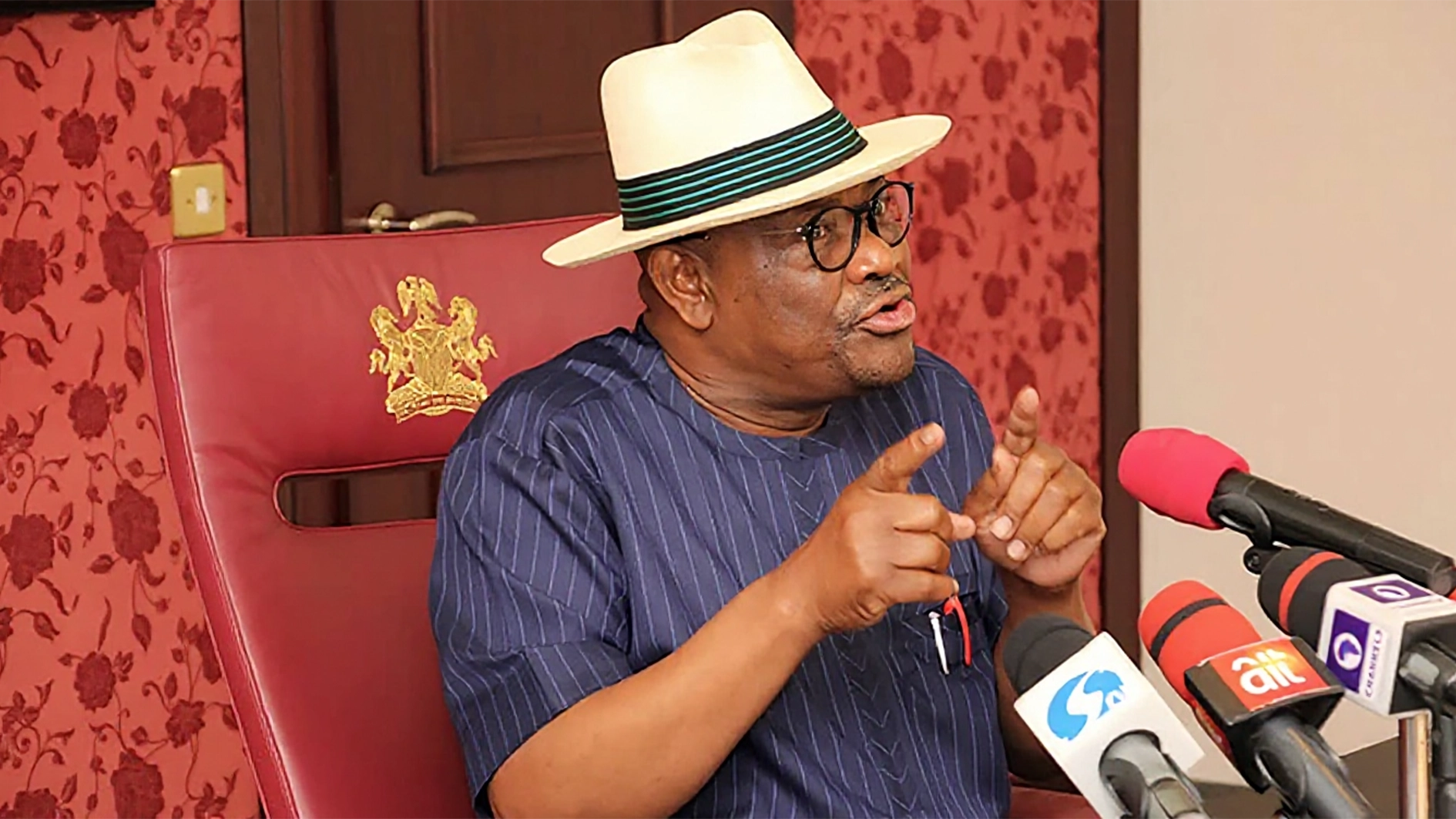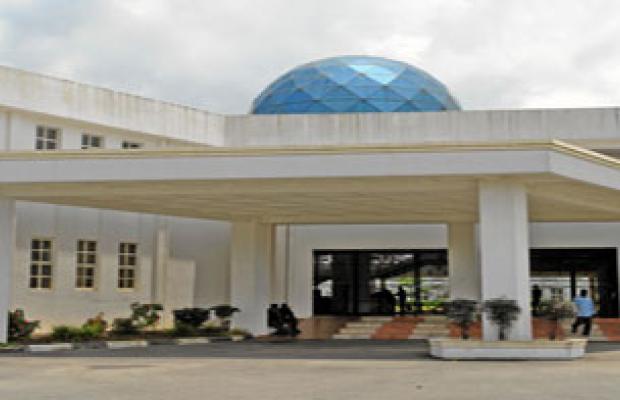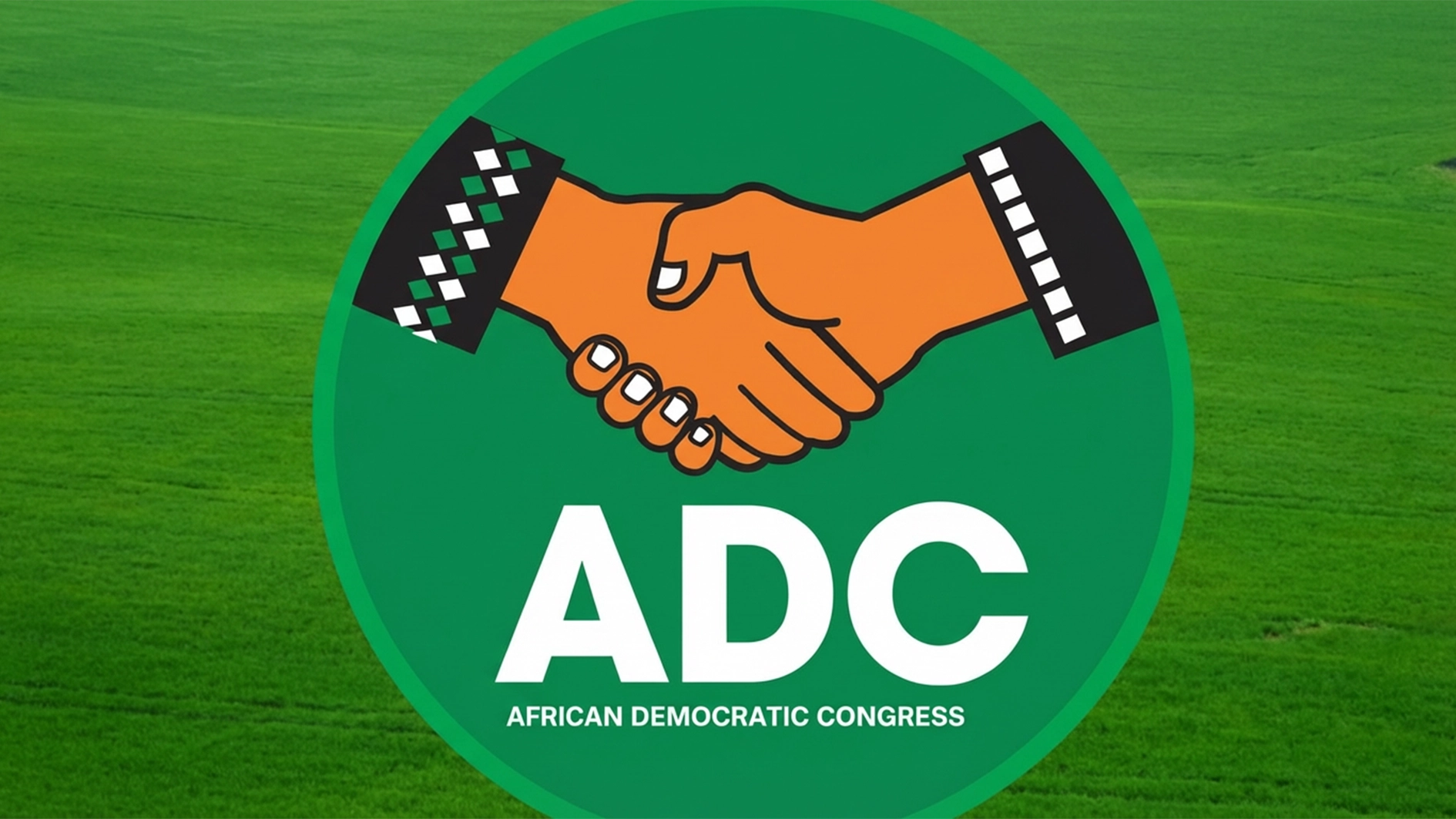• Govs hold closed-door session ahead of today’s parley
• Tinubu’s 2027 gamble could backfire without Shettima, says Baba-Ahmed
• Former President Buhari to be honoured at NEC meeting
President Bola Ahmed Tinubu will lead top figures of the All Progressives Congress (APC) to the party’s National Executive Committee (NEC) meeting today.
He will be joined by Vice President Kashim Shettima, former Vice President Yemi Osinbajo, former governors, and members of the National Working Committee (NWC).
The meeting marks the party’s first major gathering since the passing of former President Muhammadu Buhari.
According to sources, a brief session will be held in his honour as part of the day’s proceedings.
Yesterday, the party shifted the venue of its 14th NEC meeting from the APC national secretariat (Buhari House) to the Banquet Hall of the Presidential Villa, Abuja.
The relocation, according to a statement by the APC National Publicity Secretary, Felix Morka, was due to “logistical reasons”.
The meeting, scheduled for 2:00 p.m., takes place nearly a month after the resignation of the party’s National Chairman, Dr Abdullahi Ganduje, who stepped down on June 27, citing health concerns and the need to withdraw from active politics.
His exit has left a leadership vacuum, and the NEC is expected to deliberate on a possible nominee to serve as substantive national chairman, pending ratification at a future national convention.
The issue of zoning remains contentious. While some party stakeholders support retaining the chairmanship in the North-West (Ganduje’s region), others argue for a return to the North-Central, in line with earlier zoning arrangements before the 2022 reshuffle. Proponents of the North-Central option say it would reflect historical equity and promote internal party cohesion.
The leadership decisions taken at today’s meeting are expected to shape the APC’s electoral strategy ahead of forthcoming by-elections and gubernatorial contests in Anambra, Ekiti, and Osun states.
The National Working Committee (NWC) had earlier fixed the NEC meeting on June 30 to address the party’s leadership crisis and other pressing matters. Among the key issues on the agenda are preparations for the August 16 by-elections in 16 constituencies across 12 states, the presentation of new members, particularly governors, to the NEC, and updates on forthcoming party congresses.
Sources within the party revealed that the NEC may also receive a report from the constitution review committee, chaired by Governor Mai Mala Buni.
The committee was inaugurated during the 13th NEC meeting in February and comprises Opeyemi Bamidele (South-West), Alphonsus Ogar Eba (South-South), Aminu Bello Masari (North-West), Babagana Zulum (North-East), Abdullahi Sule (North-Central), and a yet-to-be-named representative from the South-East.
Party sources confirmed that attendance will be expanded due to the absence of a preceding national caucus meeting, a break from the APC’s tradition. The decision to forgo the caucus session was attributed to logistical reasons, prompting the NEC to incorporate some caucus members into today’s deliberations.
According to the APC Constitution, the NEC includes the national chairman, deputy national chairmen (North and South), national secretary and deputy, six national vice chairmen representing the geo-political zones, and a host of other national officers, such as the legal adviser, treasurer, organising secretary, publicity secretary, welfare secretary, auditor, women leader, youth leader, and their deputies.
Also part of the NEC are zonal officers—zonal secretary, youth leader, organising secretary, and women leader—as well as state party chairmen. Top government officials who are party members, including the president, vice president, Senate president and deputy, speaker and deputy speaker of the House of Representatives, governors, and principal officers of the National Assembly, are also NEC members.
In addition, each geo-political zone is expected to nominate two serving senators and three members of the House of Representatives to the NEC. Six ex-officio members, one from each geo-political zone, are elected by the national convention. The serving chairman, deputy chairman and secretary of the party’s Board of Trustees (BOT) are also NEC members.
Meanwhile, the party constitution stipulates that the national caucus comprises the national chairman, deputy chairmen (North and South), national secretary, legal adviser, treasurer, organising secretary, women and youth leaders, the special leader representing persons with disabilities, as well as past and present presidents, vice presidents, Senate presidents, speakers, governors, and other top leaders of the party.
The secretary to the government of the federation (if a party member), current and former national chairmen and secretaries, and other individuals as co-opted by the NEC are also members of the national caucus.
Tinubu meets APC govs ahead of crucial NEC parley
President Bola Tinubu held a closed-door meeting with governors elected on the platform of the APC at the State House, Abuja, yesterday.
The high-level engagement, held at the Conference Hall of the Presidential Villa, brought together members of the Progressive Governors’ Forum, the umbrella body of APC governors.
As of press time, Lagos State Governor Babajide Sanwo-Olu and Ekiti State Governor Biodun Oyebanji had arrived at the venue ahead of their counterparts.
Sources indicated that President Tinubu used the meeting to brief the governors on key Federal Government policy directions and the party’s internal agenda, particularly ongoing consultations over the emergence of a substantive APC national chairman following the resignation of Dr Abdullahi Umar Ganduje last month.
The deliberations were expected to significantly influence the tone and outcome of today’s National Executive Committee (NEC) meeting, where major leadership and organisational decisions are anticipated.
Also, ahead of today’s NEC session, APC governors held a closed-door meeting yesterday evening at the Abuja residence of Imo State Governor, Hope Uzodimma.
The meeting reportedly discussed the direction of the party and likely candidates to fill the vacant national chairmanship position.
Governors present at the meeting included Babagana Zulum (Borno), Inuwa Yahaya (Gombe), Abdullahi Sule (Nasarawa), Sheriff Oborevwori (Delta), Biodun Oyebanji (Ekiti), Monday Okpebholo (Edo), Bassey Otu (Cross River), Nasir Idris (Kebbi), Hyacinth Alia (Benue), Umar Namadi (Jigawa), AbdulRahman AbdulRazaq (Kwara), Usman Ododo (Kogi), and Uba Sani (Kaduna).
The Acting National Chairman, Ali Bukar Dalori, was expected to present updates on the party’s e-registration drive, ratify the schedule for upcoming congresses, and confirm standing committees.
Hakeem Baba-Ahmed, former spokesperson of the Northern Elders Forum and Special Adviser on Political Matters to the Vice President, has warned that President Bola Tinubu would risk significant political backlash if he decides to drop Vice President Kashim Shettima ahead of the 2027 general election.
Speaking on Channels Television, Baba-Ahmed stated that any attempt to replace Shettima could be politically disastrous, particularly in the context of the delicate religious and regional balance that underpinned Tinubu’s victory in 2023.
He described the decision to run a Muslim-Muslim ticket in the last election as a “political joker” that narrowly worked due to unusual circumstances. According to him, replicating the same formula or attempting to alter it—especially by removing Shettima—could severely alienate key voter blocs in the North, particularly among Muslims and loyalists from the North-East.
“You have offended the Muslims, the people who walked every inch of the way with you,” Baba-Ahmed said, referencing the political sacrifice made by many Muslim and northern constituencies who set aside sectarian sensitivities to support the Tinubu-Shettima ticket. “So if you remove the Vice President now, for whatever reason, you will not just offend them again you will alienate them.”
He warned that any plan to substitute Shettima with another running mate, particularly from the North-Central or a Christian candidate, would be seen as a betrayal and could backfire electorally.
“You cannot now say ‘I’m removing him and I’m going to put a Christian as my running mate’ or ‘I’m going to take somebody from the North-Central.’ It won’t work.”
Baba-Ahmed noted that Nigerians are becoming more politically aware and would not accept a ticket or political arrangement that appears motivated by opportunism or electoral expediency. “It’s the governance thing that you will take to the electorate at the end. It’s not the ticket. Nigerians are going to say, ‘What did you do in the first four years?’”
In 2023, Tinubu’s decision to run alongside Shettima, both Muslims from the South-West and North-East, respectively, was heavily criticised by Christian groups and sparked national debate. The ticket nevertheless prevailed against a divided opposition, but Baba-Ahmed suggested that the victory came at a cost and cannot be easily repeated under the same formula or with major alterations.
“This Muslim-Muslim ticket was a political joker. You cannot use that joker again. It’s spent,” he said firmly. “It worked once, because there were very unusual circumstances… but it won’t work again.”
He also advised the Tinubu administration to focus on governance rather than political scheming. “This administration is already wasting time on political calculations. 2027 is too far. People want to see real progress now.”
The remarks come amid growing speculation in political circles that Tinubu may be under pressure to reconfigure his political team ahead of the next presidential election. Some reports have suggested that the President may be exploring options to broaden his appeal by choosing a running mate from another region or religious group to soften criticism over the religious imbalance in his current pairing.
However, Baba-Ahmed cautioned against any move that might be seen as destabilising the current political structure or undermining the North-East’s contribution to the victory of the All Progressives Congress in 2023. “You want to go back to the same people and say, ‘We want your support again,’ after you’ve removed the one they gave you?”
He said there would be consequences for such a decision, especially from within the party’s Northern base. “The truth is: people notice these things. Loyalty matters. Performance matters. And if you drop a key partner in victory, especially without clear and acceptable reasons, don’t expect people to queue behind you again.”
When asked about Shettima’s performance so far in office, Baba-Ahmed did not directly assess his effectiveness but noted that leadership is a collective effort. “This administration should be judged on its total output, not on who the Vice President is or isn’t.”
He also noted that the APC will need to rely on strong voter trust to retain power in 2027. “That trust will come not from juggling the ticket, but from results. Nigerians want power, jobs, security. If you give them those, you won’t need to switch running mates to win.”






